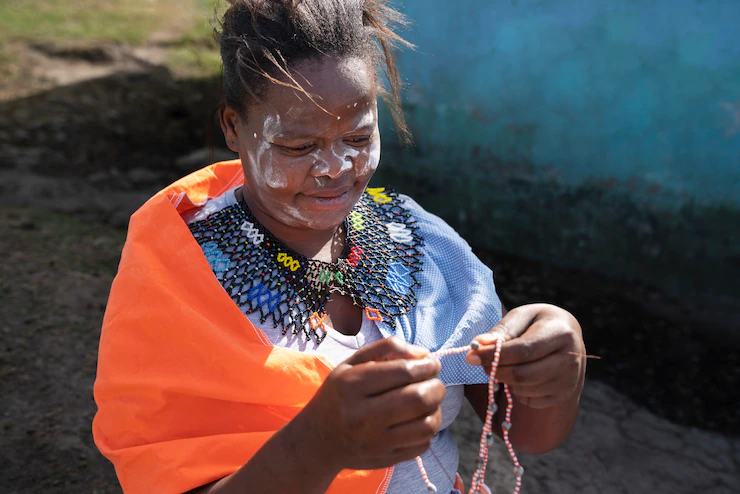In South Africa, traditional healers, also known as traditional birth attendants or midwives, have been an integral part of the healthcare system for centuries. They play a crucial role in providing maternity care and supporting women throughout pregnancy, childbirth, and the postpartum period. Traditional healers bring a wealth of knowledge, skills, and cultural practices that are deeply rooted in the traditions and beliefs of indigenous communities. In this article, we will explore the important role of traditional healers in maternity care in South Africa.
Cultural Significance and Trust: Traditional healers hold a special place in many indigenous communities in South Africa. They are seen as custodians of traditional knowledge, rituals, and practices related to childbirth. Women and families often turn to traditional healers because they offer care that is deeply rooted in their cultural heritage. The trust and familiarity between traditional healers and community members create a supportive environment where women feel comfortable and understood.
Holistic Approach to Maternity Care: Traditional healers take a holistic approach to maternity care, considering not only the physical well-being of the mother but also her emotional, spiritual, and social needs. They view childbirth as a natural and sacred process and often emphasize the importance of maintaining harmony and balance within the mother and the community. Traditional healers provide support, guidance, and encouragement throughout the journey of pregnancy and childbirth, and their care extends to the postpartum period as well.
Traditional Practices and Rituals: Traditional healers bring with them a rich repertoire of traditional practices and rituals that are deeply ingrained in indigenous cultures. These practices often include herbal remedies, massage techniques, the use of specific plants and oils, and rituals to bless the mother and child. Traditional healers may also provide guidance on nutrition, rest, and other aspects of self-care during pregnancy and after childbirth. These practices not only address physical health but also nurture the emotional and spiritual well-being of women.
Community Connection and Support: Traditional healers are deeply connected to their communities. They understand the social dynamics, cultural norms, and challenges faced by women and families. This connection allows them to provide personalized and culturally relevant care. Traditional healers also serve as a source of emotional support and a bridge between the healthcare system and the community. They can help facilitate communication and understanding between women and healthcare providers, promoting a more comprehensive and collaborative approach to maternity care.
Collaboration with Western Medicine: The role of traditional healers in maternity care is not in opposition to Western medicine but rather complementary. Collaboration between traditional healers and healthcare professionals is essential to ensure the best outcomes for women and babies. By working together, they can combine their knowledge and skills, share information, and provide a comprehensive approach to maternity care. This collaboration promotes respect for diverse cultural practices while ensuring that women have access to evidence-based medical interventions when needed.
Recognition and Integration: Recognizing the important role of traditional healers in maternity care, efforts have been made to integrate their services into the formal healthcare system in South Africa. This includes training and capacity building programs that respect and preserve traditional knowledge and practices while ensuring safety and quality of care. Integrating traditional healers into the healthcare system acknowledges the value they bring to maternity care and fosters a more inclusive and culturally competent approach to healthcare delivery.
In conclusion, traditional healers play a significant role in maternity care in South Africa. Their cultural knowledge, holistic approach, and close connection to the community make them valuable partners in promoting the well-being of women during pregnancy and childbirth. By recognizing and integrating the role of traditional healers in the healthcare system, South Africa can create a more inclusive and culturally sensitive approach to maternity care that respects and embraces the diversity of its population.










